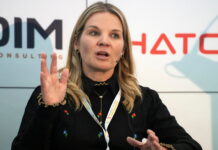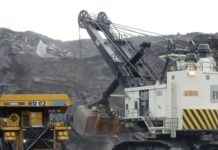
[miningmx.com] — Russia’s UC RUSAL, the world’s biggest aluminium producer, plans to boost output and restart a mothballed plant after reporting a better-than-expected profit for the second half of 2009.
RUSAL, in its first annual report since its January IPO, forecast demand and prices for aluminium to be supported by the major developed countries as the global economy revives.
The strong outlook boosted shares in RUSAL in Hong Kong, with the stock closing up 0.9 percent at HK$9.5, outpacing a broader market that closed down slightly.
RUSAL’s numbers contrasted with those from rival Chalco, which reported a surprise fourth-quarter loss in March, citing higher costs. Alcoa will report its first-quarter results in New York on Monday.
“These results were much better than Chalco’s,” said William Lo, an analyst with Ample Finance Group. “Investors may even switch to RUSAL from Chalco due to its promising prospects.”
RUSAL became the world’s biggest aluminium producer through a string of acquisitions and expansion last decade, but the global economic crisis and subsequent downturn in aluminium prices plunged the group into a debt crisis.
It eventually restructured $16.8 billion of debt late last year, and launched IPOs in Hong Kong and Paris in January.
First Deputy Chief Executive Vladislav Soloviev said in an interview the company is considering launching an aluminum ETF, which could serve as one of RUSAL’s financing channels in the future.
Details of the ETF, which would start with one million tonnes of aluminium or more, are expected in the second half of this year.
CAPACITY INCREASES COMING
RUSAL said it expects aluminium prices to remain above $2,000 per tonne throughout this year. Aluminium was trading at $2,421 at 0550 GMT on Monday, up 0.6 percent from Friday’s close.
RUSAL, which raised $2.2 billion when it became the first non-Asian company to list in Hong Kong earlier this year, posted a net profit for the last six months of 2009 of $1.7 billion, according to Reuters calculations using company data.
That compared with a loss of $7.4 billion a year earlier and a consensus forecast of a $1.4 billion profit for the last half of the year, according to analysts polled by Reuters.
The company attributed the forecast-beating profit to an aggressive cost control effort.
RUSAL said it would boost alumina output by 11 percent or 800,000 tonnes this year and aluminium by 3 percent or 100,000 tonnes as the market improves.
The company will also add 334,000 tonnes of aluminium capacity in the second half of 2011. RUSAL aims to complete the construction of the first phases of its Taishet smelter and Boguchansky smelter in Serbia in the second half of next year and complete the projects in late 2013, depending on progress of project financing.
Taishet smelter would have designed capacity of 750,000 tonnes a year with the first phase at 147,000 tonnes, he said.
Boguchansky would have designed capacity of 588,000 tonnes a year with the first phase at 187,000 tonnes.
RUSAL, now holding 4.6 million tonnes of annual production capacity of primary aluminium, would rely on the two new smelters for the capacity growth in coming few years.
The company is reluctant to increase production too much, however, due to worries that too much supply would hurt margins.
“Most important is to keep operational margins high (this year),” said CEO Oleg Deripaska, speaking to reporters in Hong Kong.
Thanks to improving conditions, RUSAL plans to restart operations of its Ewarton Works plant in Jamaica, stopped in 2009 due to cost cuts. It plans to produce about 321,000 tonnes per year of alumina at the plant this year, or about half of its capacity.
RUSAL still held a three-year contract to global investment and trading firm Glencore, a shareholder of the company, to supply 70,000 tonnes of aluminium per month from last year.
RUSAL had sold aluminium to global traders last year due to the weak market, Soloviev said.










